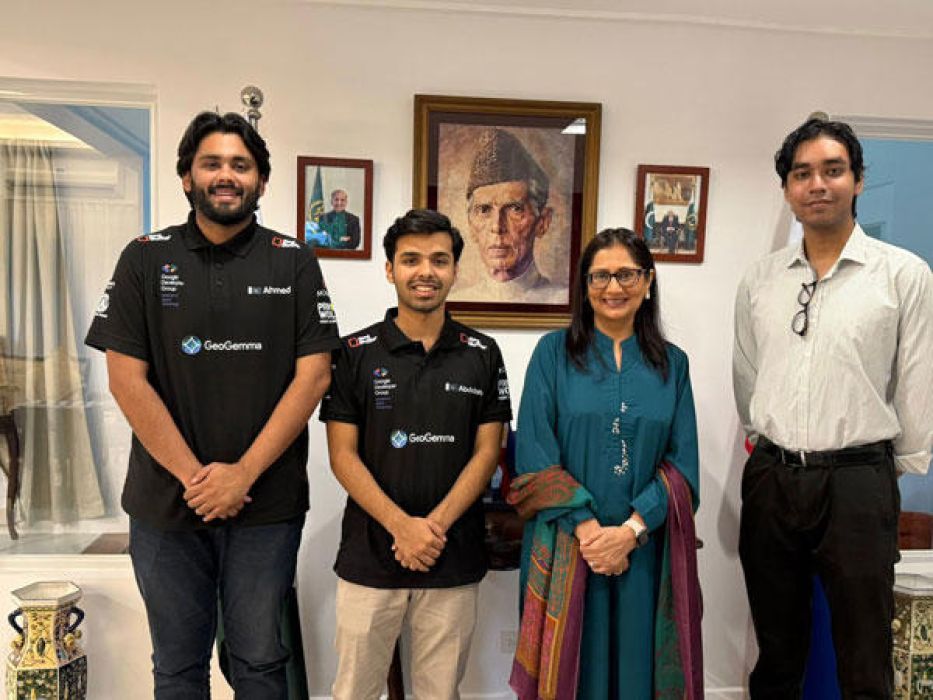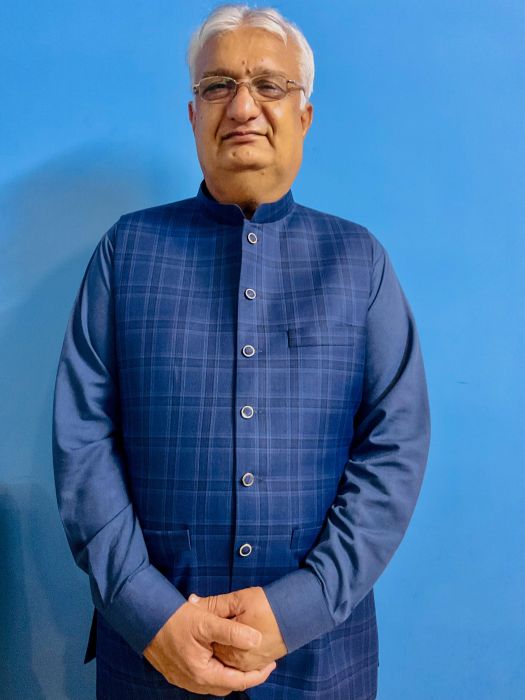"In a Mother's Absence, Her Memory Blooms": Reflections from Prof. Mukhtar on Love, Loss, and the Eternal Presence of Mothers
Posted 8 months ago
It was the second day of Eid al-Adha, a time traditionally reserved for family, reflection, and community. But for Professor Dr. Muhammad Mukhtar, it was also a day of quiet memory and subtle emotion, one that began in solitude and ended in a profound encounter that brought back the enduring spirit of his late Mother.
While many celebrated Eid in the warmth of their homes, Prof. Mukhtar walked the grounds of his university, overseeing its plantation and upkeep, a gesture symbolic of his life's devotion not only to academic and technical excellence but also to nurturing life in all its forms. It was during this morning walk that he met Mr. Hashim Abro, a noted intellectual, accompanied by his Mother.
"I bowed my head before her," Prof. Mukhtar later recounted. "It felt like I was bowing to my mother once again."
The role of mothers in our world, regardless of geography, culture, or creed, remains central, foundational, and transformative. In the West, we commemorate Mother's Day with flowers and cards. In the East, mothers are often revered as divine blessings walking among us. Yet, the essence is the same: without mothers, we are unanchored; with them, we thrive.
Prof. Mukhtar's reflections remind us how the loss of a mother alters the rhythm of life. “ماں آپ اس دنیا میں نہیں ہیں۔ لیکن آپ جیسی ایک ماں نے میرا عید کا دوسرا دن خوبصورت کر دیا,” he wrote in a moment of emotional honesty. "Mother, you are no longer in this world. But someone like you made my Eid special today." These words are not just a personal lament; they reflect a universal truth. We often fail to grasp the sanctity of our mothers while they are among us. It is only when they are gone that we begin to understand the depth of their love, the grace of their presence, and the shelter they provided silently, always selflessly.
In his tribute, Prof. Mukhtar called on society, especially those whose mothers are still living, to show reverence and gratitude: "ہاشم ابڑو صاحب اور ان جیسے بہت سے لوگ ہیں، جن کی مائیں زندہ ہیں۔ ان کا احترام کیا کریں۔" (There are many like Mr. Hashim Abro, whose mothers are alive. Respect them.)
Mr. Abro's Mother, a dignified intellectual in her own right, later described Prof. Mukhtar in words that echo the essence of maternal discernment: "He is a man who loves all living things, both humans and plants. He is humble and respects others."
For Prof. Mukhtar, who has led institutions, guided future generations, and championed skills-based education in Pakistan, the true lessons of humanity were likely first imparted by the woman he now remembers with such aching clarity. To lose a mother is to feel an irreparable void. Yet, as Prof. Mukhtar's experience illustrates, their presence sometimes lingers in the smile of another Mother, in a memory sparked during a morning walk, and sometimes in the echo of their teachings that continue to guide us even in their absence.
Prof. Mukhtar's encounter on that Eid morning was more than a chance meeting. It was a gentle reminder to the world that even when a mother is gone, her blessings can still bloom in a prayer offered by another, in a bowed head, and in a heart forever shaped by her love.
May all mothers, living and departed, be granted peace, respect, and the recognition they so deeply deserve.
آمین.





